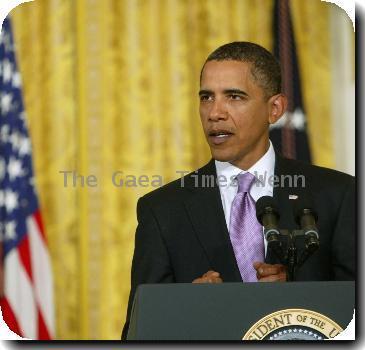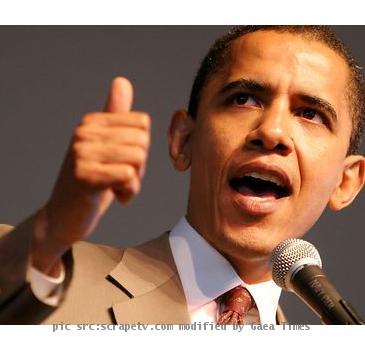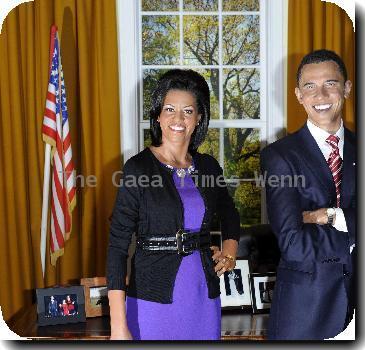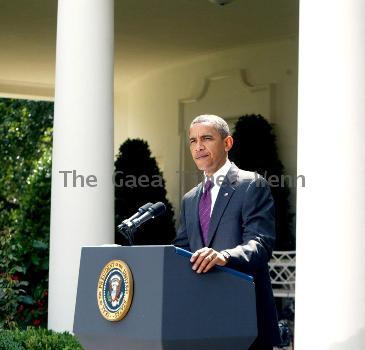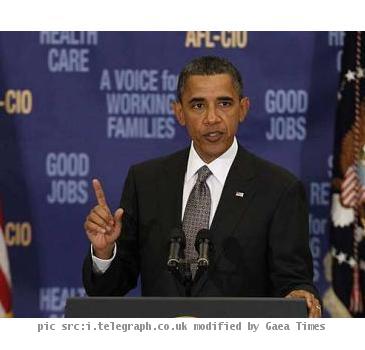Some states suing to overturn health care law also line up for its retiree subsidy
By Ricardo Alonso-zaldivar, APTuesday, August 31, 2010
Some states suing feds also claim health subsidies
WASHINGTON — More than half a dozen states suing to overturn President Barack Obama’s health care law are also claiming its subsidies for covering retired state government employees, according to a list released Tuesday by the administration.
About 2,000 employers have been approved for the extra help to cover early retirees, mainly private businesses. But the list also includes seven states suing to overturn the health care overhaul as an unconstitutional power grab by the federal government.
The seven are Arizona, Idaho, Indiana, Louisiana, Michigan, Nebraska and Nevada.
They are part of a group of 20 states that have challenged the law’s requirement for most Americans to carry health insurance or face fines from the IRS. They argue that government cannot order individuals to buy a particular product. The administration counters that the mandate falls within broad powers conferred on Congress to regulate interstate commerce.
A spokeswoman said Indiana’s Republican Gov. Mitch Daniels disapproves of Obama’s overhaul, but will take advantage of specific provisions that benefit his state.
“Congress approved health care reform and the president signed it into law. Gov. Daniels does not agree with it, but Indiana will seek funds that help Hoosiers when there are no complicated strings or costs attached,” said press secretary Jane Jankowski.
The list of employers who have expressed an interest in the subsidies includes about half the Fortune 500 companies, as well as state and local governments, educational institutions, unions and nonprofit organizations, the administration said. A total of 16 states have been approved, and more are expected to apply.
As medical costs soared in the last 20 years, employers have dramatically scaled back retiree health coverage. The share of large companies providing the benefit dropped from 66 percent in 1988 to 29 percent last year.
“Not only has this coverage disappeared, but individuals between 55 and 64 who are pre-Medicare are really struggling with the private health insurance market,” said Health and Human Services Sec. Kathleen Sebelius. “This is one of the most vulnerable populations.” Insurers usually charge older adults several times more than what people in their 30s and 40s pay.
To try to stabilize a precarious situation, the health care law provides $5 billion to help employers maintain coverage for early retirees age 55 and older but not yet eligible for Medicare.
The government subsidy amounts to 80 percent of medical claims between $15,000 and $90,000 — significant assistance to help cover high-cost retirees and eligible family members.
Companies can use the federal money to lower their own costs, or pass on the savings to their retirees through lower premiums and reduced cost sharing. Firms that receive federal help have to formally notify their retirees that they’ve gotten a subsidy.
The retiree assistance is designed as temporary relief until the health care law is fully in place in 2014. That’s when competitive insurance markets will open for business, and eligible individuals can get government tax credits to help pay premiums. It’s unclear what would happen if the $5 billion runs out before 2014.
The private employers approved for the subsidy include Levi Strauss, United Airlines, Kellogg Co., Mattel, Hewlett-Packard and Dow Chemical, to name a few.
The Associated Press will also be getting the subsidy. AP is a not-for-profit news cooperative, owned by its American newspaper and broadcast members.
Online:
Early Retiree Reinsurance Program: tinyurl.com/2w4tus9
Tags: Access To Health Care, Barack Obama, Government Programs, Government Regulations, Government-funded Health Insurance, Health Care Reform, Health Issues, Indiana, Industry Regulation, North America, Personal Finance, Personnel, Political Issues, Retiree Finances, United States, Washington
